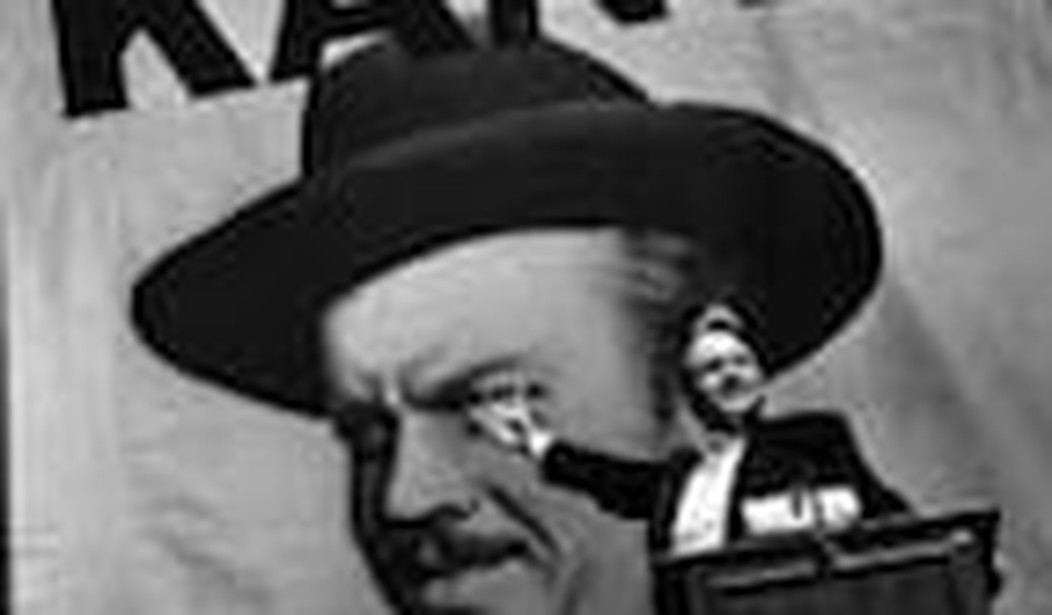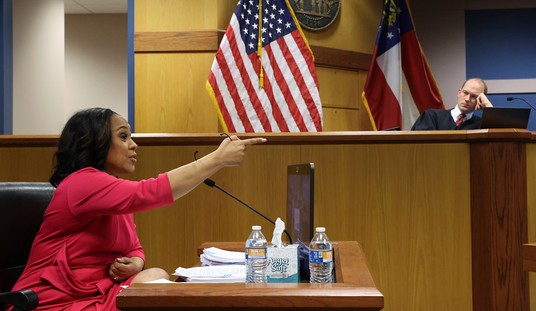The recent announcement of Jeff Bezos’ plan to buy the Washington Post — and just the Post, along with a few other smaller publications, but not the parts of the Washington Post Company that are actually making money, like Kaplan Inc. — has prompted a lot of speculation.
The speculation seems to be based on a simple syllogism: traditional newspapers are no longer capable of making a profit; Bezos bought a traditional newspaper; therefore, Bezos has some other motivation besides making a profit. So, the speculation continues, what could Bezos have in mind? Political leverage? A bail-out of the Grahams? A rich man’s hobby? Or, as Sharon Waxman at Reuters suggested:
He bought it because as an Internet age mogul and a member of the New Establishment, he wanted a platform that would validate him within the Old Establishment.
In other words, as a nouveau riche billionaire, Bezos is buying social respectability, like a car dealer buying a country club membership.
But what if Bezos knows what he’s doing? Let’s see if we can make sense of the purchase as a business, and not merely a billionaire’s bauble.
What does the Washington Post offer? It’s certainly a respectable and respected paper, a reliable voice of the Ruling Class, and still riding on the myth of Watergate power. (One of the repeated warnings to Bezos from naysayers: he’d better not even think of changing that.) It has a reasonable circulation, a good reputation, and a well-established bunch of reporters, along with a massive printing and distribution operation.
Like most big papers, it’s also losing money at a prodigious rate: $22 million in 2011; over $50 million last year.
What does Bezos bring? This has been a puzzle for many; after all, he’s a mere retailer, a tradesman, and while he did attend Princeton, his degree wasn’t in a proper field like political science or history — it was in engineering. What’s more, he doesn’t plan to live in Washington, he apparently doesn’t like cocktail parties, and he declined to be interviewed by his own paper.
All Bezos offers is his ability to make $30 billion by launching a business that has reshaped retail worldwide — and his oft-stated opinion that print will be dead within a few years.
Oh, and one more thing: the dominant e-publishing platform in the Kindle.
We’ve looked at the economics of traditional publishing a number of times here at PJM, always with one result: conventional print publishing is actually a manufacturing business, in the industry of making and selling large objects made of wood pulp and ink. The cost of printing the books, records, CDs, or papers completely dominates the costs of traditional publishing. The real money-making in newspaper publishing comes from advertising: reporters report, editors edit, type is set, and paper is printed to get advertising in front of people. In the advertising business, the saying has been that 90 percent of all advertising is wasted, but no one knows which 90 percent it is. A major part of the advertising business has been involved in “targeting” — directing advertising to narrower and narrower populations of people in the hope of making it more and more likely you reach people who will buy your product.
So now, let’s imagine publishing a “paper” to an electronic platform. In fact, let’s not be coy about it and imagine publishing to the Kindle. Here, we have a platform that can deliver text content almost instantly and update it automatically; that eliminates the cost of printing.
What’s more, if you have a Kindle, Amazon already knows what you like to read, and often what you buy — I’ve bought everything from health and beauty products to specialty groceries to furniture from Amazon.
And your Kindle knows where you are: the Kindle Fire has “location services” built in.
So here’s your new Washington Post: primarily delivered on Kindles, other Android platforms, and on Kindle apps on iPhone and iPad. Amazon applies your reading preferences and generates content with the selection optimized to what you like to read — my “front page” would have lots of politics, science, and foreign news; yours might have the sports pages and feature stories instead.
Amazon sells advertising much as Google does now with Adwords and Adsense — based on what it knows you like and are interested in — and it localizes some of that advertising down practically to your street address. A Pizza Hut ad will give the local phone number for pizza delivery whether you’re at home or at the Westin in the Chaoyang District of Beijing. By eliminating the paper products, Amazon can do this at internet prices — say, a dollar a month, $12 a year — versus $360 a year now, while eliminating the dominant cost of publishing a newspaper now.
What’s more, just as Amazon transformed book selling by becoming a central source for every book buyer worldwide, the Bezos Washington Post, with the localization and targeting offered by the platform, can become the first truly national newspaper, publishing local news stories for every metropolitan area that show up to people in those areas, or to people who have expressed an interest in an area. If you’re a Colorado fan in Oakland, you still get coverage of the Rockies.
I’d watch for news that Bezos is buying up defunct local papers, or rather the name and trademarks of those papers. The Denver edition of the Bezos Post might be called the Rocky Mountain News edition.
This would have an interesting effect editorially, too. The Washington Post — along with the New York Times, the Los Angeles Times, the Boston Globe, and most other newspapers — has been very provincial: it reports Washington news to a Washington audience. It is, by the very nature of things, going to be the mouthpiece of the Ruling Class. That’s their audience. If the Post is going to sell well outside the DC Metro area, this will have to change. Over time, a “national” Washington Post will necessarily develop a broader selection of views.
If I’m right, this could be a very big business indeed. Bezos might just know what he’s doing after all.










Join the conversation as a VIP Member